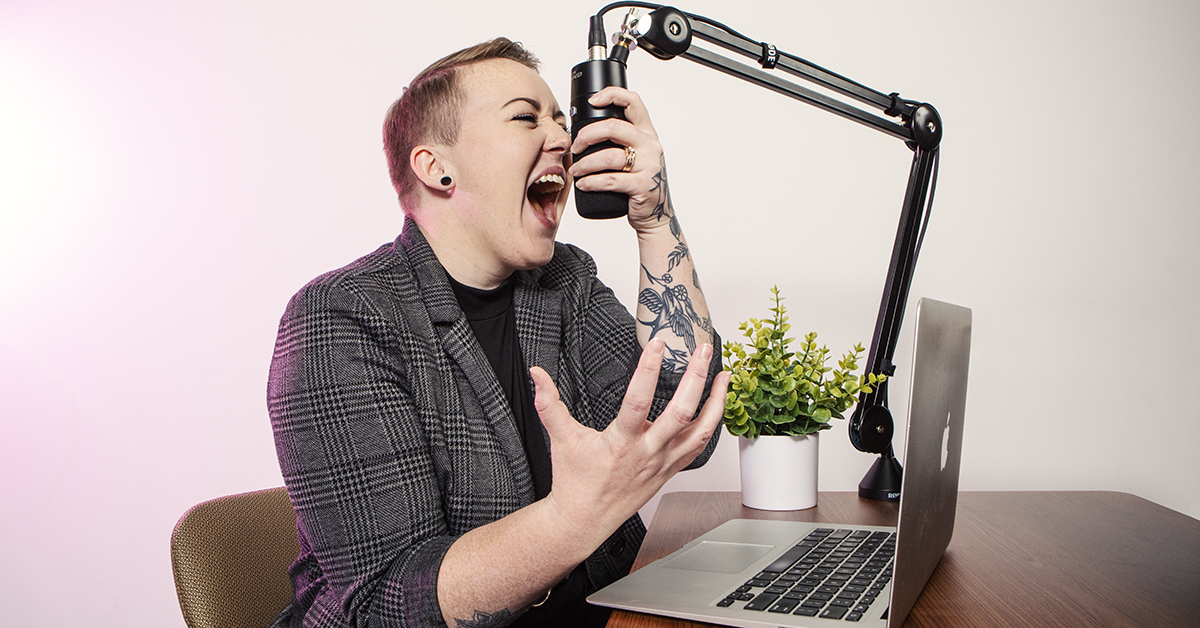Podcasting mistakes can be made in several different areas. These include, but are not limited to, not having a clear goal, niche, or target audience. Also, if you aren’t properly recording, you may not have the best sound quality. Another mistake is talking too slowly or overly promotional.
Talking too much about your company or products
One of the more common blunders brands make is talking too much about their products. Talking about a product is not a bad thing, but there is a better way to go about it. Here are a few tips that will keep your podcasting endeavors on the right track.
The first rule of thumb is to avoid a one-trick pony podcast. This is especially true if you are a small business or a solo professional. You don’t want to appear overly smarmy or your listeners will see through it. If you do happen to go the traditional route, do your homework and make sure to include guests with a wide range of backgrounds and opinions.
Despite its reputation as a low-brow, low-returns endeavor, you can use podcasting to your advantage. Podcasting is a fun and easy way to engage with potential customers and to keep you in the loop about industry news and events. In fact, podcasting can be a powerful business development tool, as long as you do it the right way.
Talking too slowly
When it comes to podcasting, delivering a message effectively is more important than presenting information. However, there is a fine line between talking too slowly and speaking too quickly. You should always strive to maintain an appropriate rate of speech.
Typically, you want to make sure you deliver a message at a rate of 150 to 160 words per minute. This ensures that the audience can comprehend the message. There are a few tips you can follow to help you achieve this goal.
The best way to improve your delivery is to rehearse. By rehearsing, you’ll identify sections where you need to slow down. Also, you’ll get a better sense of how your voice sounds. Once you master this, you can go into the recording session with the confidence of knowing you’ll be able to perform at a decent level.
Not having a clear goal, niche, or target audience
If you want to become a podcaster, you need to have a niche, target audience, and goal in mind. Having these three factors in place will help you succeed. With a clear focus, you can build a loyal following.
Podcasting can be a great way to market yourself and your business. It can help you connect with a large number of people, but you must create quality content. Quality content will attract people to your podcast, which will increase your reach.
There are many ways to promote your podcast, such as guest blogging, PR, SEO, and social media. But it’s important to know which tactics are most effective. Some people find that paid promotions are helpful, but they can also be risky. The best way to promote your podcast is to use search engine optimization. This will lead to organic traffic, and you’ll get enough backlinks to grow your audience.
Not having proper soundproofing
If you want to start podcasting, you should know the importance of soundproofing. There are several reasons why soundproofing is important. It can help you avoid sneaky noises, it can keep unwanted sounds out of the room, and it can give you more control over the sound.
Not having proper soundproofing can lead to poor audio quality. That’s why you should be sure to plan your studio location wisely. Choose a place where you can record without having to worry about external noise.
Soundproofing can keep unwanted outside sounds out of the room. You can do this by adding materials that absorb the noise, or you can use white noise machines to drown out some of the sounds.
For example, you can install acoustic partitions or fabric wrapped acoustical panels. These will soften the noise in your podcast studio. However, these types of products are expensive.
Not promoting your podcast
When you’re first starting out with your podcast, you may wonder how to get people to listen to it. There are a few things you can do to help build your audience. However, you must first find out why you’re creating your podcast.
One way to do this is to understand your target audience. You need to know their demographics, how they’re getting to you, and what your podcast is about.
Another good way to get feedback is through social media. You can use hashtags to create a conversation with a wider network of people. You can also look for influencers in your niche and follow them. These people will likely resonate with your content.
Lastly, make sure your podcast is listed on all the major platforms. This will ensure that you can promote your podcast to the maximum number of people.



